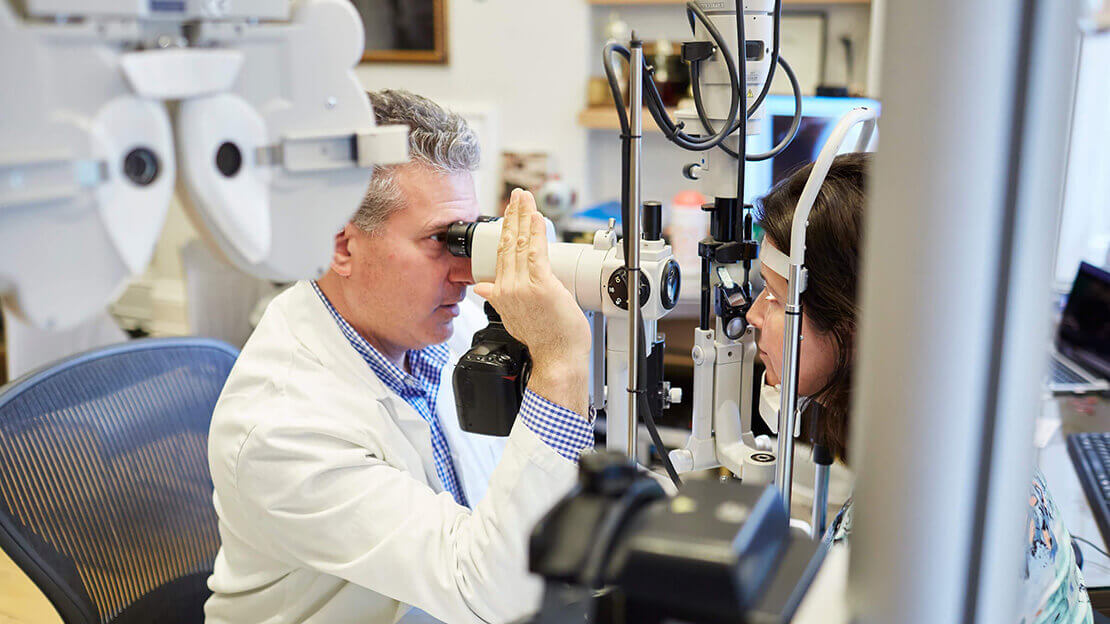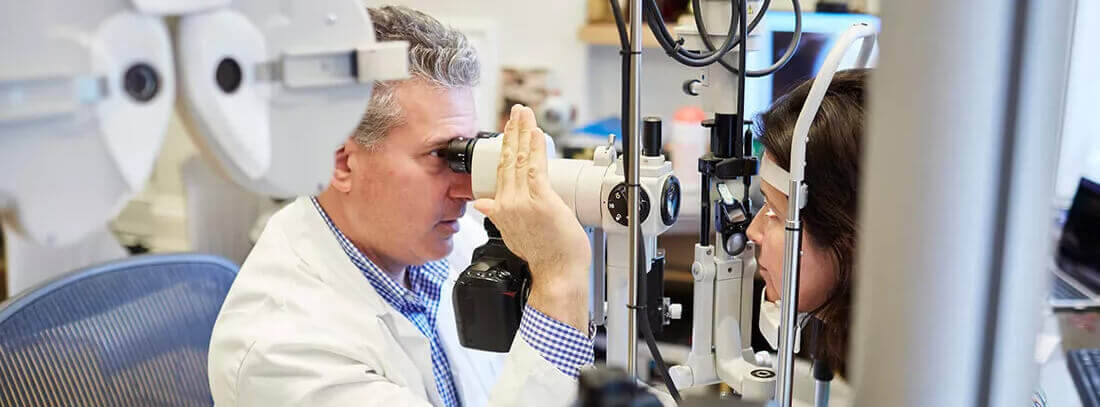Learn More About Cataract Surgery
Before you book your Cataract Surgery or choose a clinic, it is a good idea to be as informed as possible about the procedure and what it can mean for you.
Below are some questions that you may want to consider asking your optometrist or operating surgeon before the procedure.
Cataracts are cloudy obstructions that develop as the proteins in the eye’s natural lens begin to break down. These obstructions are a completely natural part of the ageing process, however, they can have a significant impact on vision and quality of life. It is therefore necessary to undergo treatment to prevent serious vision loss.
Cataracts can develop in one or both eyes, but they tend to develop at different rates. For this reason, even if cataracts have begun to form in both eyes, they won’t necessarily become noticeable at the same time.
For more information on what cataracts are and how they affect your eyes, click here.
Cataract Surgery is the only solution to cataracts. This means that no other treatments have been proven to be effective at managing cataracts.
while you may not require surgery immediately (cataracts can take years to become significantly obstructive), treatment should not be postponed for long once recommended by a medical professional. If left untreated, cataracts can become “hyper-mature”, which can make treatment more difficult and eventually lead to vision loss.
For more information regarding waiting for Cataract Surgery, click here.
Cataract Surgery is among the most common elective procedures in the UK, with excellent success rates. However, as is the case with any surgical procedure, it is not without its risks. It is important to be aware of the potential risks and side effects of Cataract Surgery.
In rare cases, complications can include retinal detachment, glaucoma, and retention of the cataract. It is also common to experience some side effects following the procedure, including mild discomfort, watery eyes and grittiness; however, these symptoms tent to resolve within a few days to weeks.
For more information about the potential complications and side effects of Cataract Surgery, click here.
Thanks to the routine nature and relative simplicity of the procedure, Cataract Surgery has an extremely high success rate. Estimates indicate that between 95% and 99% of Cataract Surgery procedures are deemed successful.
However, some factors, such as the age of the patient and maturity of the cataract, may affect the outcomes of Cataract Surgery.
For more information about factors that may affect visual outcomes following Cataract Surgery, click here.
Obstruction caused by cataracts can cause significant impairment to vision. The primary aim of Cataract Surgery is to remove this obstruction by replacing the affected lens with a clear artificial lens. When completed effectively, Cataract Surgery should significantly improve blurriness and visual acuity.
Estimates indicate that over 90% of cataract patients will achieve a best-corrected visual acuity of 6/18 or better.
For more information on what to expect after Cataract Surgery, click here.
While Cataract Surgery should greatly improve your general vision, your visual acuity after the procedure will be dependent on several factors, including whether you have an existing refractive error and the type of intraocular lens (IOL) used in your treatment.
For example, monofocal lenses (used in NHS Cataract Surgery) are only designed to focus at one distance (near, intermediate or far). Therefore, patients with existing refractive errors such as long-sightedness, short-sightedness, or astigmatism, will still need glasses or contact lenses for best-adjusted Visual Acuity. However, a range of premium IOLs (used in private Cataract Surgery) can correct these errors.
For more information about glasses after Cataract Surgery, click here.
There are two main types of intraocular lens (IOLs). The monofocal lens is designed to correct vision for a single distance while premium lenses can be selected to correct vision across multiple distances. IOLs can also be toric (correct astigmatism) or non-toric.
NHS Cataract Surgery involves exclusively monofocal lenses which are generally non-toric. Therefore, many patients will require glasses following the procedure.
As part of your treatment, the right IOL will be determined based on any existing refractive errors as well as the size and shape of your eyes.
For more information on the different types of intraocular lenses, click here.
To determine your need for Cataract Surgery, an optometrist will perform several tests and examinations. These tests will confirm that you have a cataract and that you are suitable for surgery. These generally include:
- Visual acuity test
- Slit-lamp examination
- Retinal exam
- Applanation tonometry
For more information on what to expect before Cataract Surgery, click here.
Following the procedure, your treated eye(s) will be more vulnerable to infection. It is therefore advised to refrain from certain activities that could expose your eyes to dust, debris, and other potentially harmful objects.
your surgeon will discuss these restrictions with you on the day of your surgery.
For more information on activities to avoid after Cataract Surgery, click here.
Before your surgery, your surgeon will advise you of any precautionary measures you may need to take. For example, you may be required to stop wearing contact lenses in the days before your procedure or make any relevant preparations for your recovery.
You should also make your doctor and/or surgeon aware of any medications you are taking before your surgery. This will allow them to advise you on whether you should stop taking them before and/or during your treatment. Your surgeon will also advise you of any other changes you will need to make to aid your recovery.
To learn more about Cataract Surgery and lifestyle changes, click here.
As a minor procedure, patients undergoing Cataract Surgery can return home on the same day as their procedure. While you may notice an immediate improvement in your vision, it can take a few weeks for your eye(s) to fully recover.
During this recovery period, it is important to follow the advice given by your eye doctor and/or surgeon. This generally includes avoiding exercise and other strenuous activities and keeping your treated eye protected.
For more information about your recovery after Cataract Surgery, click here.
Surgery is the only solution to the formation of cataracts. The procedure effectively removes the cataract and can help to significantly restore your vision. Furthermore, it is estimated that over 95% of procedures are completed without any significant complications.
However, it is important to be aware of any factors that could affect the outcome of your treatment. These can include ocular and systemic comorbidities as well as your age and how mature the cataract is.
The potential risks and benefits of Cataract Surgery will vary from patient to patient. Nonetheless, Cataract Surgery is considered to be a safe and effective routine procedure in many parts of the world.
For more information regarding the factors which may affect the outcome of your treatment, click here.
Following your Cataract Surgery, you may be asked to attend follow-up appointments. These appointments ensure your procedure was a success and that your recovery is going smoothly. They also provide patients with an opportunity to discuss any concerns about their treatment and clarify the details of their recovery regime.
Follow-up appointments are also important for determining whether you will require any further treatment. While uncommon, this will be the case if you develop Posterior Capsule Opacification (PCO) or if there is some retention of your cataract.
For more information on additional treatment after Cataract Surgery, click here.
The cost of Cataract Surgery in the UK can vary significantly – particularly when comparing NHS to private treatment. Cataract Surgery is offered for free by the NHS, but only once cataracts begin to cause significant impairment to vision and quality of life. For this reason, many patients in the UK choose to attend a private clinic for their treatment as this gives them more control over when they have the procedure and provides better options when it comes to intraocular lenses.
At London Vision Clinic, the cost of Cataract Surgery includes your pre-operative evaluations and post-operative care and medications, in addition to the procedure itself. Many health insurance providers cover the cost of Cataract Surgery; however, you should check the details of your policy with your provider to confirm this.
For more information regarding private vs NHS Cataract Surgery, click here.
At London Vision Clinic, we are home to experienced surgeons with world-class expertise in Cataract Surgery. Each of our expert surgeons has been handpicked to ensure the best possible care and outcomes and for their enthusiasm in going the extra mile for every patient.
We offer a high-quality, personalised treatment with an exceptional success rate (among the best in the country – and the world!). This is thanks to the knowledge of our team of surgeons and our unique access to the most up-to-date technology.
For more information about what makes Cataract Surgery at London Vision Clinic as effective as possible, click here.
We are always blown away by the reviews and testimonials from our patients. We have now received thousands of 5-star reviews across all our available treatments – including Cataract Surgery. For example, Nadya, who had Cataract Surgery with Mr Alistair Stewart at London Vision Clinic in 2021, had this to say:
“Mr Alistair Stewart operated on me and he was so caring and made me feel totally at ease during the procedure. Even though I was due to see him the day after surgery, he even contacted me the afternoon of my surgery to see how I was doing.
“I felt so cared for. The aftercare has also been exceptional with regular check ups during the first year after surgery. Definitely recommend this clinic.”
To see more of our patient reviews for Cataract Surgery, view our TrustPilot page here.

